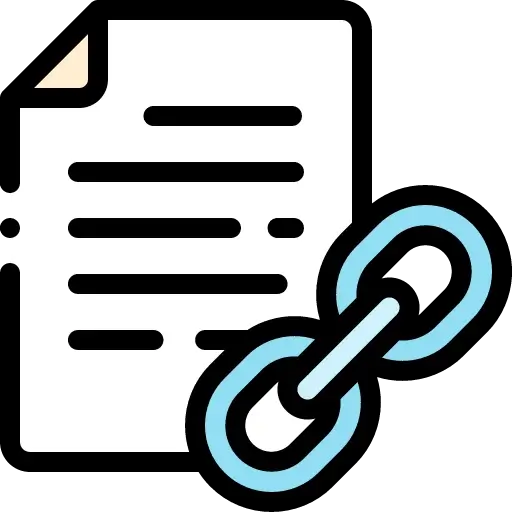All-in-One Website Management Tools
to Power Performance and Security
Our free Website Management tools are very popular and easy to use. In today’s digital age, launching a website is just the beginning. Managing, securing, and optimizing it continuously is what drives growth, improves SEO, and enhances user experience. That’s where website management tools come into play.
Whether you’re running a blog, a business website, an eCommerce platform, or a portfolio, managing your website efficiently requires a powerful toolkit. These tools handle everything from SEO monitoring, security, performance optimization, to content scheduling — ensuring your website remains fast, safe, and search engine-friendly. Visit our website, Web Tools Lab and also use our Free Backlink Tools.
In this comprehensive guide, we’ll explore:
- What website management tools are
- Why are they critical for success
- The best website management tools in 2025
- How these tools boost SEO and performance
- FAQs to help you get started
What Are Website Management Tools?
Website management tools are software platforms or online utilities designed to help you maintain, optimize, and grow your website. These tools simplify tasks such as:
- Website uptime and speed monitoring
- Security scanning and malware removal
- SEO auditing and keyword tracking
- Backup management and restore points
- Content publishing and scheduling
- User analytics and behavior tracking
Many of these tools are beginner-friendly and require little to no coding knowledge, making it easy for small business owners, bloggers, and marketers to manage websites like pros.
Why Website Management Tools Are Essential?
Your website is your digital storefront. A slow, vulnerable, or outdated site can cost you traffic, sales, and search engine rankings. Website management tools help eliminate those risks.
Top Reasons You Need Website Management Tools:
1. Ensure Maximum Uptime
Tools like Uptime Robot and Pingdom notify you instantly when your website goes down so you can act fast.
2. Boost Site Speed & Performance
Speed matters. Tools like GTmetrix and Google PageSpeed Insights help identify performance bottlenecks like large images, render-blocking scripts, or slow-loading pages.
3. Protect Against Malware & Hackers
Security plugins like Wordfence or Sucuri monitor threats, scan for malware, and provide real-time protection.
4. Track SEO & Keyword Rankings
Tools like Google Search Console and RankMath provide insights into your keyword performance, broken links, and indexing status.
5. Schedule & Manage Content
WordPress and CMS dashboard tools let you schedule blog posts, organize categories, and manage users — essential for content-heavy sites.
6. Automated Backups for Peace of Mind
Never risk losing your site. Backup tools like UpdraftPlus or BackupBuddy offer one-click backup and restore options.
7. Understand User Behavior
Google Analytics and similar tools let you analyze bounce rate, average time on page, traffic sources, and more.
Best Website Management Tools
| Tool | Purpose |
| Google Search Console | Monitor SEO performance, fix indexing issues, track impressions & clicks |
| Google Analytics | Detailed website traffic insights, user behavior, and bounce rate analysis |
| Uptime Robot / Pingdom | Website uptime monitoring and performance alerts |
| Wordfence / Sucuri | Website security, malware removal, and firewall protection |
| BackupBuddy / UpdraftPlus | Website backup and restore options |
| Yoast SEO / RankMath | On-page SEO analysis, keyword optimization, schema integration |
| GTmetrix / PageSpeed Insights | Page speed test and suggestions to boost load time |
| WordPress Dashboard Tools | Manage themes, plugins, users, and schedule content posts |
Here’s a curated list of top-rated website management tools you should use to maintain and scale your site effectively:
Most of these tools offer free versions packed with essential features, making them perfect for beginners and professionals alike.
How Website Management Tools Help SEO?
SEO isn’t just about keywords — it’s about delivering a high-quality experience to users and search engines alike. That includes having a fast, secure, mobile-friendly website with proper structure and minimal downtime.
Here’s how website management tools directly improve SEO:
1. Speed Optimization: Faster websites improve rankings. GTmetrix and PageSpeed Insights help reduce load time and enhance Core Web Vitals.
2. Link & Crawl Error Monitoring: Google Search Console flags broken links, crawl errors, and indexing issues.
3. Mobile Friendliness: Some tools test mobile compatibility and help you design responsive layouts.
4. Security Boosts Trust: Secure websites (HTTPS, firewall-protected) earn better rankings and user trust.
5. Structured Data & On-Page SEO: Plugins like RankMath and Yoast SEO add meta titles, schema markup, sitemaps, and canonical tags.
6. Content Management: Keeping content fresh and scheduled improves engagement and lowers bounce rates.
How to Choose the Right Website Management Tools?
When selecting tools, consider your goals and website type:
- Beginners: Choose tools with a user-friendly interface and automation features.
- eCommerce Sites: Use advanced security, inventory tracking, and speed optimization tools.
- Bloggers: Focus on SEO plugins, analytics, and backup solutions.
- Business Sites: All-in-one tools that offer SEO, backups, security, and uptime monitoring are ideal.
Frequently Asked Questions (FAQs)
Q1: What is the most essential website management tool for beginners?
For beginners, tools like Google Search Console, Yoast SEO, and UpdraftPlus are easy to use and cover SEO, backups, and indexing basics.
Q2: Are website management tools free?
Many of them offer free plans with core features. For example, Google Analytics and Search Console are completely free, while plugins like RankMath or UpdraftPlus offer both free and premium versions.
Q3: How do these tools improve website performance?
They identify technical issues like slow loading speed, broken links, or security vulnerabilities — all of which impact user experience and search engine rankings.
Q4: Can I manage a website without technical knowledge?
Absolutely! Modern tools are designed for non-technical users. Most come with step-by-step instructions, dashboards, and automated features.
Q5: Do I need all of these tools?
Not necessarily. Start with core tools for SEO, performance, and security. As your website grows, you can add more advanced features based on your needs.
Final Thoughts
Running a successful website goes far beyond content creation. To stay competitive in 2025 and beyond, you need the best website management tools to help you monitor uptime, secure your site, boost your SEO, and understand your audience. These tools not only save you time but also improve your website’s performance, trustworthiness, and visibility in search results.
GM Khan
Share This:
Related Tools

Website Tracking Tools
Website Tracking Tools – Free tools for website analytics, visitor tracking, page performance, and SEO insights. Monitor website traffic.

Content Tools
Content Tools – Free tools for content writing, grammar checking, readability analysis, and SEO optimization. Create high-quality content, generate ideas, and improve website ranking.

Backlink Tools
Backlink Tools – Free tools for backlink analysis, link tracking, and SEO insights. Check backlinks, monitor referring domains, analyze link profiles, and improve website authority.



































